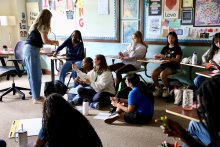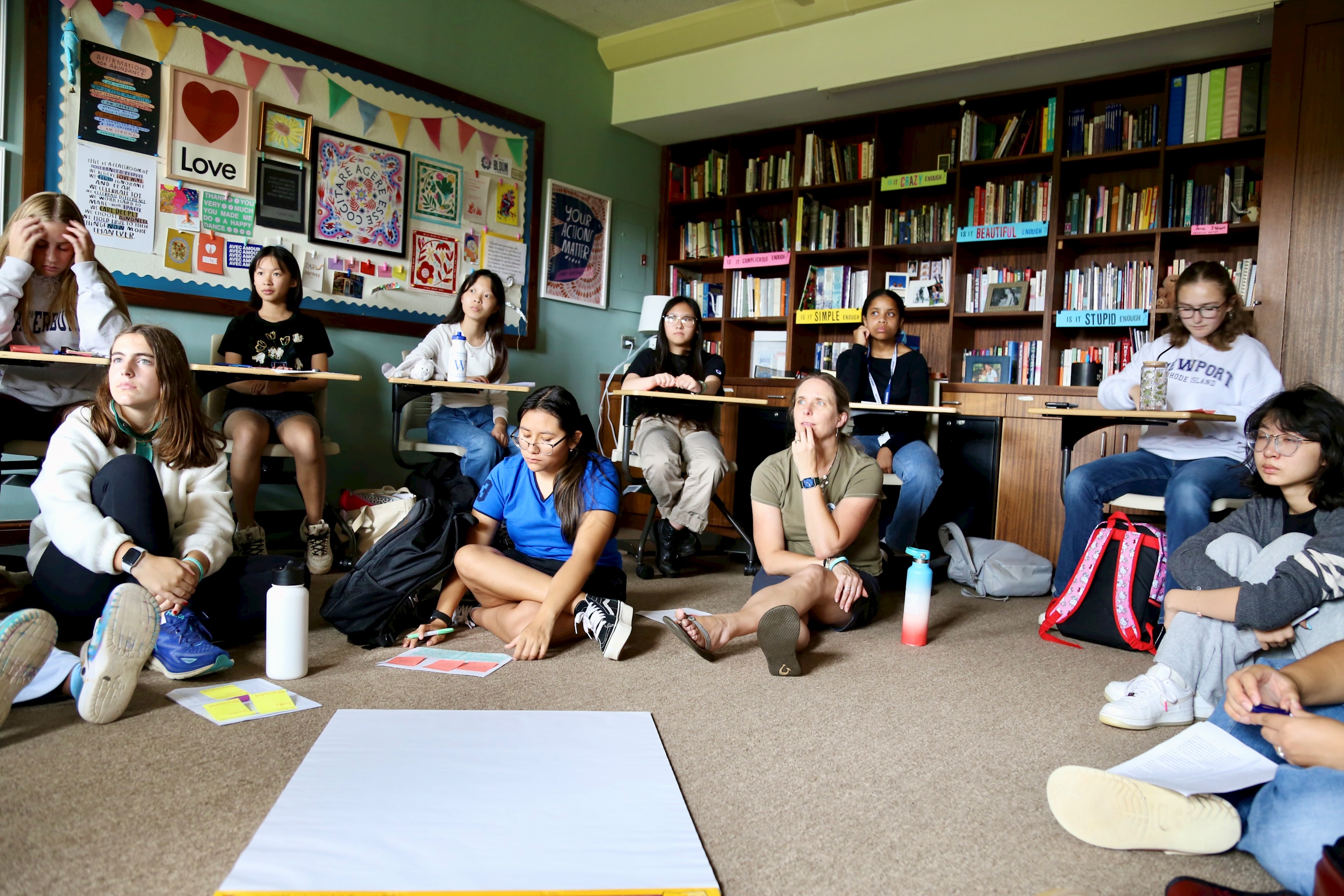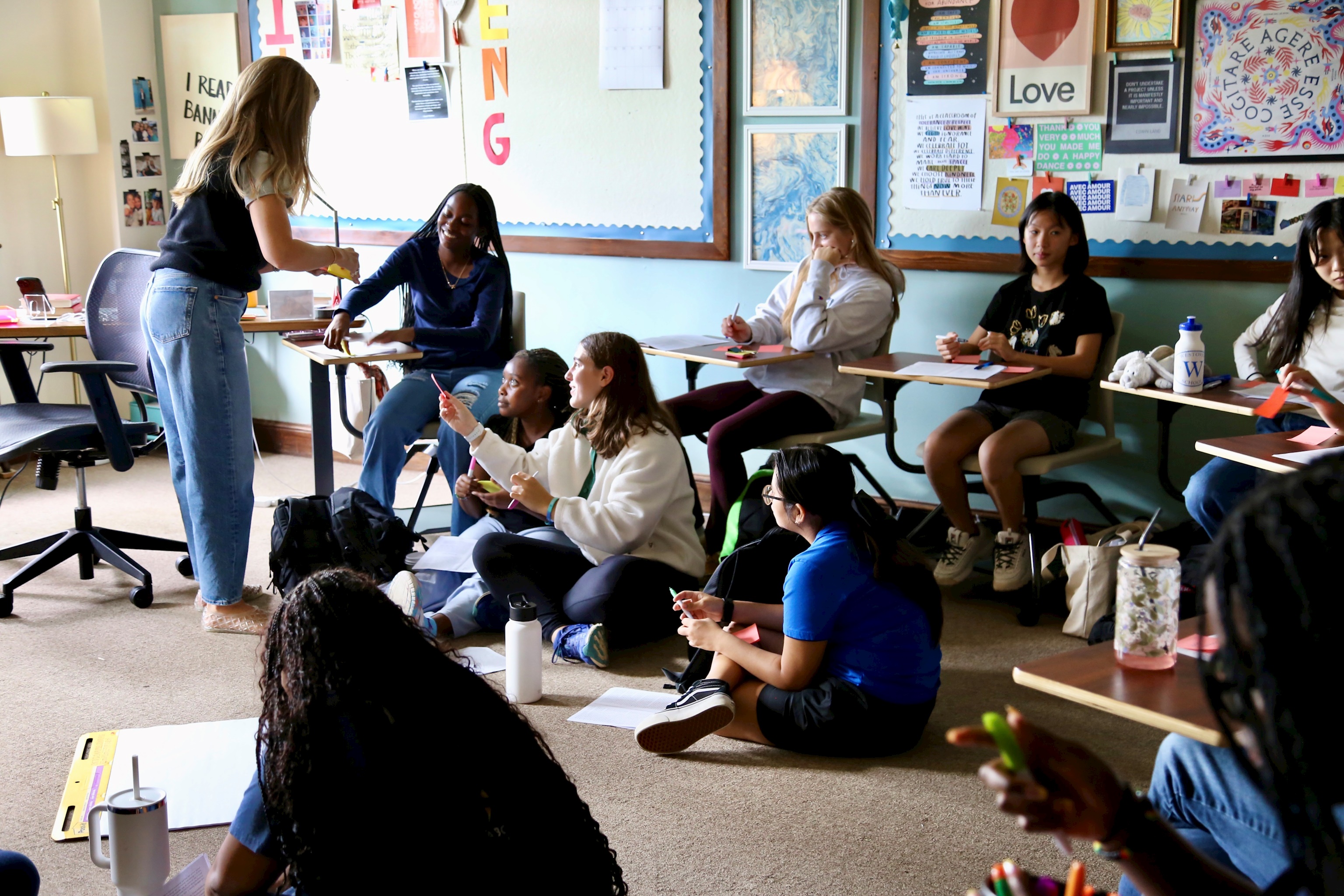


Last week, students, faculty, and staff interested in joining Westover’s Integrity and Justice Council (IJC) participated in a restorative practice training session with Nicole Lavonne Smith-Johnson. The IJC aims to use restorative practices to address harm and conflict,instead promoting accountability and healing within the community. Members of the group are trained in circle facilitation and restorative methods, and they lead Restorative Circles to support individuals dealing with issues like interpersonal harm, bias incidents, or integrity violations. These Circles offer community members a space to reflect on their actions, communicate their needs, and foster stronger relationships.
Meredith Whitehouse, Chair of the English Department and Faculty Coordinator of the Integrity and Justice Council, shared :
When I arrived at Westover in 2022, I was drawn to what felt possible in this small and intentional community. I came with a background in Restorative Justice implementation, and I was eager to continue that work. After spending a year learning about the systems that existed and noticing places where positive changes could foster a school culture that didn’t just talk about belonging but rather enacted belonging, in 2023 with the partnership of Hadley Zeavin, the Integrity and Justice Council was born. Now in its second year, the Integrity and Justice Council is a group of students and adult community members who come together to explore what it means to intentionally live and work collaboratively in ways that center belonging. The purpose of the IJC is to utilize restorative practices to address harm and conflict and encourage accountability and repair within the community. Members of the group are trained in circle facilitation and restorative practices, and members of this council facilitate Restorative Circles in order to help to support individuals when issues such as (but not limited to) interpersonal harm, incidents of bias, or integrity violations occur. The goal of Circles is to provide an opportunity for community members to reflect on their choices, express their needs, and strengthen relationships. When harm happens, as it does in any community, IJC members work collaboratively with both those who have caused harm and those who have experienced it to develop a pathway to accountability. Through this work I have witnessed what it means to shift our focus from revenge to repair, to offer people avenues to take accountability, to ask “What do you need?” instead of asking “What did you do?” This work has not only changed the way I think about harm, it has also fundamentally changed me.
Last year, we launched IJC with about eight members. This year we are a group of over twenty students and adults. At Westover, this work has caught on in a meaningful way, and IJC members are sitting down weekly with one another to have conversations about how to apologize, how to think about systems and structures that perpetuate harm, how to articulate what they need, how to address problems directly and with care, how to work through the inherent messiness of being human. Additionally, faculty are participating in monthly circles where we work to build empathy, care, and love for one another, because we cannot fully support students if we do not feel supported ourselves. The work adults are doing to strengthen their own relationships shows up in the quality of relationships we can then build with our students.
At its heart, restorative justice is about being in “right” relationships with one another. In the words of Fania Davis, restorative justice is “a proactive relational strategy” that asks us to think about the well-being of the collective. It is inherently hopeful work in that it allows me to continue to move towards about what could be: a community in which we prioritize the needs of the whole before ourselves, in which we accept responsibility for our actions, and in which we feel called upon to make amends for our errors because we want to nurture and sustain our rich connections. It is my honor to sit with students and adults as we enter into these spaces that call on us to be the better versions of ourselves sas we bring to life our Vision for Belonging and Justice.
.pdf&command_2=resize&height_2=85)





.jpg&command_2=resize&height_2=85)




%20(1)%20(1).jpg&command_2=resize&height_2=85)


.jpg&command_2=resize&height_2=85)
.JPG&command_2=resize&height_2=85)

%20w%20Raleway.jpg&command_2=resize&height_2=85)


